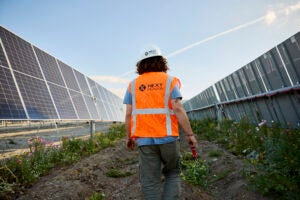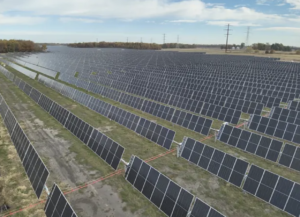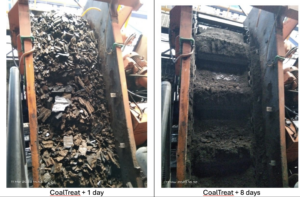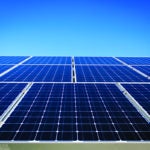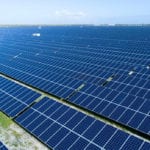Florida Power & Light (FPL) began the new year by opening four new solar power plants, along with officially retiring one of its two remaining coal-fired plants in the state.
The utility on January 8 said the four solar plants began operating on January 1, 2018. They are the Horizon Solar Energy Center, in Alachua and Putnam counties; the Coral Farms Solar Energy Center in Putnam County; the Indian River Solar Energy Center in Indian River County; and the Wildflower Solar Energy Center in DeSoto County. Each has a generation capacity of 74.5 MW.
The utility plans to add four more 74.5-MW solar plants to its generation fleet by March 1, 2018, sited in Brevard, Indian River, Hendry, and St. Lucie counties. FPL has installed more than 3.5 million new solar panels in the state over the past two years. It expects to have more than 10 million solar panels in service by 2023.
“The truth is progress like this doesn’t happen by accident,” Eric Silagy, FPL’s president and CEO, said in a statement. “It’s because of our culture of responsible innovation and an unwavering commitment to customers that we’re able to deliver cleaner, more reliable energy while keeping electric bills among the lowest in the country.”
2.1 GW of Solar Planned
FPL last year said it would have 2.1 GW of new solar capacity installed on its system within the next seven years as the utility continues to transition to increased use of renewable energy.
The coal-fired St. Johns River Power Park in Jacksonville, Florida, was retired on January 5. The 1,300-MW plant had been in service for 30 years, but co-owners FPL and the Jacksonville Electric Authority (JEA) for months had said it was no longer economic to operate. The plant cost $1.45 billion to build, and the JEA and FPL still owe hundreds of millions on the plant, which the utilities said they will continue to pay.
“[The plant] was getting to the end of its life,” JEA spokeswoman Gerri Boyce said in a statement. Boyce said the owners already have begun dismantling the plant, and its iconic twin cooling towers that towered over the north side of Jacksonville will be imploded later this year.
FPL, which is owned by Juno Beach, Florida-based NextEra Energy, in late 2016 closed its coal-fired 258-MW Cedar Bay Generating Plant in Jacksonville, and plans to complete its demolition in early 2019. It also plans to retire its 330-MW Indiantown Cogeneration facility—which it purchased for $451 million in 2016 from Calypso Energy Holdings—by the end of 2019. The Indiantown plant is located in Martin County, east of Lake Okeechobee.
Along with solar power, natural gas-fired power generation also is ramping up in Florida, although some in the state—including Florida Public Service Commission member Gary Clark—have said they are concerned about an overreliance on the fuel. Clark, at a hearing in October 2017, said Florida’s “current dependence on natural gas is extremely alarming to me.”
Clark’s comment came after Tampa-based Seminole Electric Cooperative, which provides wholesale power to nine electric co-ops in the state, in September 2017 announced plans for a 1,050-MW natural gas-fired plant near Palatka in Putnam County. Seminole filed a proposal to build the plant with the state Department of Environmental Protection in late December 2017.
FPL’s transition to natural gas include projects at Riviera Beach, Port Everglades, and in Okeechobee County. It also wants the state to approve construction of a new 1,200-MW gas-fired plant in Dania Beach. Duke Energy, which has been expanding its footprint in Florida, is currently building a $1.5 billion, 1,640-MW natural gas-fired combined cycle plant near Crystal River in Citrus County. That plant is expected to come online in stages beginning at mid-year, and be fully operational by the end of 2018, according to the company.
—Darrell Proctor is a POWER associate editor (@DarrellProctor1, @POWERmagazine).


